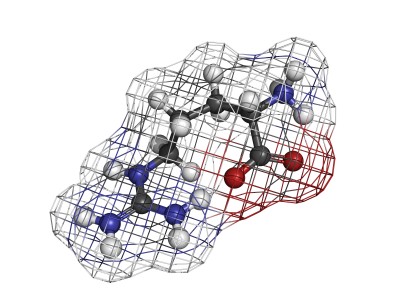

- HGH Deficiency
- So you took a look at yourself in a mirror recently and your heart sank by what you saw.
- Can Human Growth Hormones Really Reverse the Signs of Aging
- We hear about HGH or human growth hormone supplements far more often than we did just a few years ago.
- HGH Benefits for Men
- There are several benefits that males can derive from HGH use, although these are mostly off-label.
- How to Handle an HGH Deficiency in Adults?
- our physician tells you that you have a human growth hormone deficiency or HGH deficiency – now what? What does this mean?
- HGH Use for Bodybuilding
- Human growth hormone (HGH) is considered highly essential for the health and wellbeing of an average person.
- GenF20Plus Double Blind Clinical Study Shows Results That are Promising
- The market is full of unproven HGH products, but only the manufacturer of Genf20 Plus has taken the time to conduct a double blind clinical study.
Arginine and its Role in Producing HGH in the Body
Arginine is a key amino acid and for more
than fifty years, it has been scrutinized and studied by
researchers. Amino acids are the building block of protein, and
in turn, protein is the building block for living cells. There
are more than 20 amino acids that have been identified and
studied and that includes Arginine.

80 percent of the amino acids are called ‘non essential amino acids, because the body can synthesize them from other amino acids. Arginine is a non-essential amino acid. The other 20 percent of required amino acids must come from dietary sources, as the body cannot manufacture them. The body’s ability to synthesize amino acids is dependent on age and health.
The study of the role of amino acids in the body has led to a number of revelations such as Arginine is linked to:
- An enhanced immunity system
- The release of HGH or human growth hormone
- Rapid injury healing
- Greater muscle mass
- The reversal of atherosclerosis
- An increase in sexual potency
- Assisting the kidneys in removing waste products from your body
Arginine and HGH Production
There is a scientific study on the effects of L-Arginine on HGH release. The administration of a large dose of L-Arginine has become a standard test for the ability of the pituitary to release growth hormone. According to scientists, there is a test that uses insulin that is more effective, but the USFD is not accepted as the standard test.
Most scientists think that L-Arginine promotes the release of HGH by inhibiting Somatostatin, and at least one scientific study has demonstrated this. In addition to being an HGH releaser, L-Arginine has a number of other benefits.
Problems with Arginine as an HGH Releaser
There have been some problems with Arginine use as an HGH releaser. The effectiveness will diminish with both age, and with constant use. Unfortunately, this has caused some to make a dangerous assumption that amino acids like L-Arginine can cause dangerously high levels of HGH to be released.
Young people can use L-Arginine, but a person must have stopped growing 5 years prior, unless it is administered under close medical supervision.
For most people, the recommended dose of amino acids to improve HGH release is 10-30 grams of L-Arginine, which is often combined with 2 grams of L-glutamine, and this will maintain youthful levels of HGH beginning at around 30 years of age and carrying on into one’s early 40s, and occasionally past the age of 50. To be effective the L-Arginine must be used for 6 weeks and then stopped for about 2 weeks. This cycling can be continued indefinitely.
Is Arginine Supplementation Safe?
There have been clinical trials conducted, and in those clinical
trials, Arginine has been safely used for up to three months
with minor side effects. Possible side effects include bloating,
abdominal pain, gout, and diarrhea.
In those with asthma, it can increase breathing problems.
Arginine can sometimes interact with some medications that lower
blood pressure, interact with certain heart medications and some
drugs such as Viagra. Women who are pregnant or nursing should
not take Arginine until talking to their doctor.
=> Try Genf20 Plus For 60 Days Risk Free! <=

- "A lot of great info on HGH therapy and HGH supplements"
- Stan (Fort Lauderdale)
- "I almost started using prescription HGH injections but because of the high cost involved and the long list of side effects I opted for Genf20 plus instead and I was glad I did!"
- Jenifer (Los Angeles)
- "Before buying Genf20 Plus You must read the reviews at genf20plus.info"
- Eric (San Diego)
- "Thanks for showing both the benefits and the risks of using HGH"
- Nancy (NYC)
- Latest Articles
- All You Need to Know About HGH Replacement Therapy
- Human growth hormone (HGH) is required for some essential functions in the body.
- Maximize Your HGH Levels With Genf20 Plus, Diet and Lifestyle Choices
- Taking the HGH supplement can also help your pituitary gland to produce more HGH.
- Does Human Growth Hormone Work for Weight Loss?
- In addition to using HGH supplements you should consider intensive exercise and intermittent fasting.
- Gynecomastia in Men and How HGH Affects It
